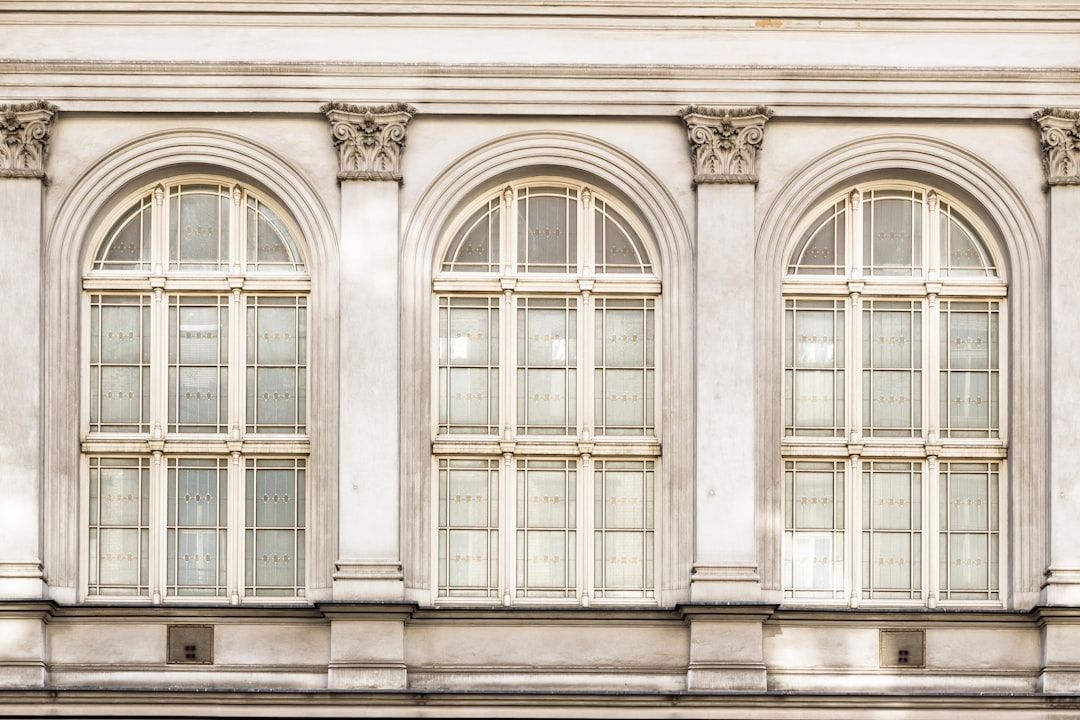IN BRIEF
|
To optimize thethermal insulation of your home, the choice of custom windows is essential. Here are the key steps to follow:
- Determine the dimensions : Accurately measure the space where the window will be installed to ensure a perfect fit.
- Choose the material : Opt for materials such as PVC, THE drink or thealuminum, which offer different levels of insulating performance. THE drink is an excellent natural insulator, while PVC protects against thermal variations.
- Select the type of glazing : THE double glazing is often recommended for its thermal performance and its ability to reduce heat loss.
- Evaluate the Uw coefficient : Search for a coefficient Uw low (ideally ≤ 1.3 W/m².k) to guarantee good energy efficiency.
By following these steps, you will be able to choose tailor-made windows adapted to maximize the thermal comfort of your home while limiting your energy bills.
The choice of windows for your home is a crucial issue, especially when it comes to optimizing thethermal insulation. Custom-made windows offer a solution adapted to the specificities of each home, thus maximizing comfort while reducing heat loss. In this article, we explain the key steps to choosing your custom windows, with emphasis on insulation criteria.
The choice of materials
THE material of your windows plays a fundamental role in their energy performance. The main options available are wood, PVC and aluminum. Wood is a excellent natural insulator, offering good thermal performance. PVC, for its part, offers very good value for money while being effective against thermal variations. Aluminum, although less insulating on its own, often benefits from a boost using thermal break techniques. The choice of material must therefore be made according to your priorities in terms of aesthetics and performance.
The type of glazing
THE type of glazing is another crucial element to ensure quality insulation. THE double glazing is recommended because of its ability to reduce heat loss while providing good solar gain. For even higher performance, you can consider the triple glazing, although it is more expensive. Be sure to check the Uw coefficient of your windows: the lower it is, the more insulating the window is.
Window dimensions
To guarantee a better insulation, it is essential to take precise measurements for your windows. Custom windows allow the size to be adjusted to fit perfectly within the opening, limiting air leaks. Good sealing is essential to avoid thermal bridges which would harm the energy efficiency of your home.
Technical characteristics
In addition to the material and glazing, it is important to pay attention to technical characteristics such as the thermal transmission coefficient (Uw) and the solarity factor (Sw). Opt for windows with a Uw less than or equal to 1.3 W/m².k and a Sw greater than 0.3. These values guarantee effective thermal insulation, thus contributing to significant energy savings.
The choice of craftsmen
Finally, don’t forget the importance of selecting a qualified craftsman for thefacility of your custom windows. Poorly carried out installation can cause heat loss and harm the performance of the joinery. Check the qualifications of the professionals and opt for those who respect the standards in force in the field of insulation.

The choice of custom windows is crucial to optimize thethermal insulation of your home. By taking into account several important criteria, you will be able to select windows that not only adapt to your space, but also guarantee thermal comfort while reducing your energy bills. This article presents practical advice for choosing your custom windows to improve the energy performance of your home.
Window materials: a decisive choice
The first criterion to consider is the material of your windows. THE PVC, THE drink and thealuminum are the three most common options, each with distinct advantages. PVC offers excellent value for money and has good insulating properties. Wood, as a natural insulator, brings an aesthetic and ecological touch, while aluminum is recognized for its durability and resistance.
Double glazing, essential for insulation
When choosing windows, favor double glazing, which remains the best choice to benefit from optimal thermal performance. This type of glazing significantly reduces heat loss while providing effective management of solar gain. For even greater performance, consider triple glazing, although this may increase the initial cost of your project.
The Uw coefficient: a key indicator
The coefficient Uw (or thermal transmission coefficient) is an essential parameter to take into account during your selection. The lower this coefficient, the better the insulation of the window. A Uw of less than 1.3 W/m².K is considered efficient, and a Uw of around 1.1 W/m².K is very efficient. Do not hesitate to request this data from your supplier.
Custom dimensions and specifications
To get the most out of your custom windows, it is essential to accurately determine the dimensions of each opening. This step requires precise measurements and a good understanding of the types of installation (apparent or hidden). In addition, define the features such as the opening (sliding, hinged, etc.) is essential to ensure the functionality and desired aesthetics.
The choice of installation: an essential factor
Finally, thefacility windows is just as important as their choice. Incorrect installation can compromise the effectiveness of the insulation, leading to air infiltration and humidity. It is therefore advisable to call on professionals to ensure a secure and compliant installation.
- 1. Material : Choose wood, PVC or aluminum depending on your insulation needs.
- 2. Type of glazing : Prefer it double glazing for a better thermal compromise.
- 3. Uw coefficient : Select windows with a Uw ≤ 1.3 W/m².k for effective insulation.
- 4. Custom dimensions : Measure the space precisely to avoid thermal bridges.
- 5. Solar contributions : Choose windows that maximize light while reducing excess heat.
- 6. Acoustic performance : Consider sound insulation for optimal interior comfort.
- 7. Maintenance : Consider specific maintenance needs depending on the material chosen.
- 8. Aesthetics : Make sure the window style matches your home.

Choose your custom windows for better insulation
| Criteria | Advice |
| Material type | Favor it PVC for its quality-price ratio, the drink for its ecological performance andaluminum for its durability. |
| Type of glazing | Opt for double glazing for effective thermal insulation, ideal for limiting heat loss. |
| Uw coefficient | Choose windows with a Uw less than 1.3 W/m²·K to guarantee good thermal insulation. |
| Dimensions and installation | Measure accurately and choose a custom installation to eliminate thermal bridges. |
| Acoustic performance | Check the acoustic characteristics of the glazing for optimal sound comfort, especially in an urban environment. |
| Interview | Plan for windows with easy maintenance to extend their lifespan without compromising insulation. |
Choosing custom windows is an essential step to optimize thethermal insulation of your home. Indeed, windows adapted to your needs can significantly improve the comfort of your home by reducing heat loss. In this article we will look at the key criteria to consider when selecting custom windows that will guarantee better thermal performance.
1. Window materials
The choice of material is decisive for the insulation of your windows. The three most common types are drink, THE PVC and thealuminum.
Drink
Recognized for its excellent thermal performance, wood is a natural insulator that also offers a warm aesthetic. However, it requires regular maintenance to preserve its qualities.
PVC
PVC has a value for money often unmatched. It offers good thermal insulation and is resistant to climatic variations, making it a popular choice.
Aluminum
Aluminum is a robust material, but its thermal conductivity is lower than that of wood and PVC. To compensate, it is recommended to opt for systems with thermal break.
2. Types of glazing
THE glazing plays a crucial role in the thermal performance of your windows. The best option remains double glazing, which combines insulation and favorable solar gain.
Double glazing
Double glazing provides effective insulation by trapping a layer of air between two panes of glass. Opt for a coefficient Uw (thermal conductivity coefficient) less than 1.3 W/m²K to guarantee good insulation.
Triple glazing
For even higher performance, triple glazing can be considered, especially in regions with harsh winters. However, its cost can be prohibitive for certain projects.
3. Thermal performance
Before purchasing custom windows, review the technical specifications and coefficients associates. A Uw of less than 1.1 W/m²K indicates a highly insulating window.
Uw coefficient
This coefficient measures the amount of heat that escapes through the window. The lower it is, the better thethermal insulation.
Coefficient Sw
The coefficient Sw refers to the capacity of the window to promote solar gain. It is important to find a good balance between the two to maximize thermal comfort while minimizing heat loss.
4. Configuration and dimensions
Window dimensions and configuration should also be considered. Custom windows can be adapted to match the architecture of your home while optimizing theenergy natural.
Precise measurements
Take precise measurements before ordering to ensure perfect installation. Even a slight deviation can compromise thewaterproofing and therefore thermal efficiency.
Window configuration
Consider the type of opening (French, tilt-and-turn, etc.) that will best suit your space and your ventilation needs.
5. Aesthetics and design
The choice of custom windows must also take into consideration the aesthetics of your home. Windows can significantly contribute to the architectural style of your home.
Colors and finishes
The finishes chosen can be personalized to match your interior or exterior. Options vary depending on the material, whether wood, PVC or aluminum.
Style
Finally, the style of your windows can influence thermal comfort. Casement windows offer better performance than a simple fixed window due to their seals which improve thewaterproofing.
Testimonials on the choice of custom windows and their impact on insulation
Jean, owner of an old house, recently decided to replace his windows to improve thethermal insulation of his home. He testifies: “I opted for windows in PVC with efficient double glazing. I was surprised by the difference in comfort in my home. Not only do I save on my heating bills, but I also benefit from better light thanks to the quality of the windows.”
Marie, a young mother, also shares her experience: “When we moved into our house, the insulation was poor. After much research, we chose glass windows. drink. In addition to their excellent thermal performance, they fit perfectly into the style of our house. We noticed a significant reduction in drafts and an improvement in comfort in both summer and winter.”
Lucas, an architect, explains: “For my clients, I always favor custom-made windows with a Uw coefficient optimal, that is to say less than 1.3 W/m².K. This guarantees a insulation quality. I encourage my clients to consider materials like drink or thealuminum according to their specific needs and the aesthetics of their project.”
Aline, committed to the eco-responsible approach, chose windows in aluminum : “I wanted durable and aesthetic windows. The custom models allowed me to meet my requirements while promoting the energy efficiency of my home. The combination ofinsulation and the solar contribution was decisive in my choice.”
Finally, Thomas, who recently installed custom windows, concludes: “The switch to double glazing has transformed my house. I did not know to what extent the choice of windows could influence thethermal insulation. The difference is tangible, and I highly recommend taking the time to choose wisely.”

